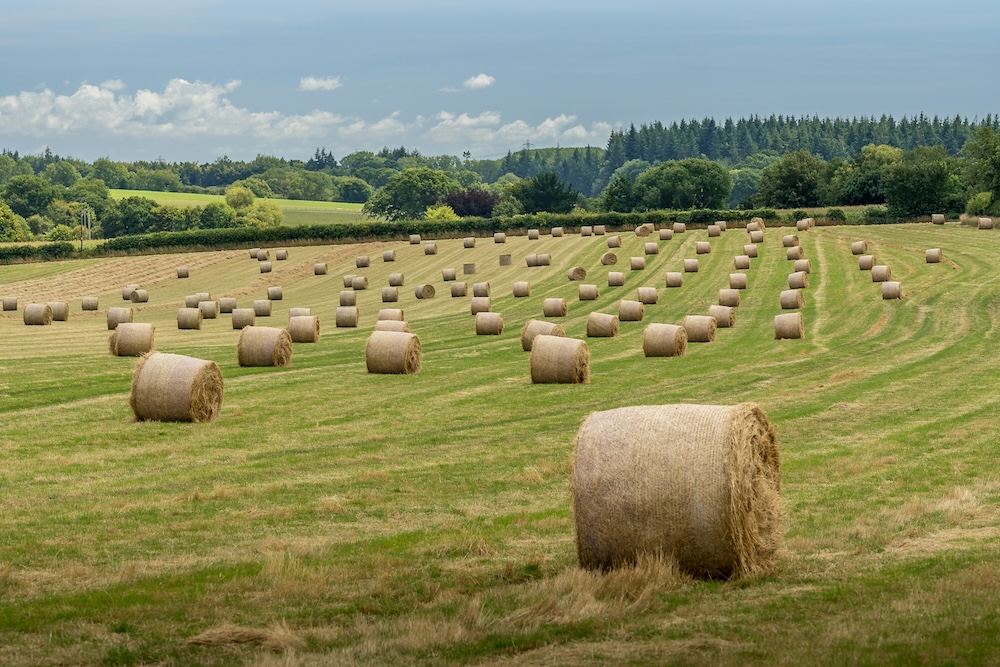Sam Meadows investigates carbon credits in Wales and the likely impact of the Welsh Government’s tree planting strategy
The rush to plant tens of millions of trees in Wales has created opportunities for investors to cash in on fighting climate change – but community groups have warned this could be at the expense of productive farmland and biodiverse habitats.
Tree planting is touted as an important tool in the fight against climate change, prompting the Welsh Government to announce its bold target of planting 86 million trees across 43,000 hectares – a space covering more than 20,000 rugby pitches – by 2030.
The UK is among the least densely forested countries in Europe. Roughly 15 per cent of Wales is covered with woodland, slightly above the UK average of 13 per cent, but far lower than the 37 per cent average across the EU.
The targets will mean a rapid acceleration in the number of planting projects springing up all over the country, partly facilitated by the Woodland Creation Grant, which will provide £30m of funding over the next two years, and a number of smaller grants aimed at farmers and small landowners.
However, there is another reason that planting trees could prove to be financially lucrative for landowners and investors: carbon credits.
What is a carbon credit?
A carbon credit is awarded to a landowner when their activities – in this case planting trees – helps absorb carbon from the atmosphere. This credit can then be sold to a company or organisation seeking to achieve carbon neutrality.
Environmentalists argue that the carbon credits system is a flawed attempt to solve the climate crisis as it allows companies to claim they are doing something to help the environment without actually reducing emissions.
For example, a delivery firm might create carbon emissions as its fleet of vehicles travels around the country. Meanwhile, a nearby landowner has planted trees and been awarded carbon credits for doing so.
The delivery company wants to offset its emissions, so it buys carbon credits from the landowner in order to ‘balance’ the amount of carbon it has created. This helps it meet its net-zero targets and it can tell its customers that their spending will not contribute to climate change.
Projects aimed at creating woodland in order to claim carbon credits are becoming increasingly common in Wales. According to data from the Woodland Carbon Code, which is one the UK’s certification schemes for carbon credits, there are now 204 projects registered in Wales covering nearly 2,000 hectares.
However, carbon credits are considered by many to be controversial.
Robust debate and agenda-setting research.
Support Wales’ leading independent think tank.
Growing concerns
Environmentalists argue that the carbon credits system is a flawed attempt to solve the climate crisis as it allows companies to claim they are doing something to help the environment without actually reducing emissions.
However, these criticisms of the system combine with more local concerns about how the schemes themselves affect communities. In Wales these have included worries about how biodiversity can be protected amid the predicted large-scale increase in new woodland.
A report from the Initiative for Nature Conservation Cymru, published last summer, said that new woodland ‘done well’ could have a positive impact on carbon emissions and wildlife. However, the group’s chief executive Rob Parry said there was a concern that mass tree planting could threaten important habitats like natural grassland.
‘If you are a landowner, then the land you put forward for tree planting will be the least productive land, which is likely to be very important for wildlife,’ he said.
Additionally, the wildlife value of native broadleaf trees is far higher than the non-native conifers which make up many commercial tree planting schemes. The INCC has said there is a place for conifer in Wales, but warned of ‘vested financial interests’ in the conifer industry. Creating new areas of natural grassland would take much longer, but could have a greater ecological impact, according to Mr Parry.
The Welsh Government said it has a ‘rigorous system’ in place to ensure all woodland creation projects are appropriate and that ‘priority’ habitats and species are protected. A spokesman said: ‘Woodlands are some of our most biodiverse habitats and planted in the right place, trees can greatly enhance our biodiversity.’
It has recently provided funding for two grassland projects in South and North Wales through its Nature Networks Programme.
Loss of farmland
There have also been several cases of Welsh farmland being purchased by companies based outside the country seeking to plant woodland and claim carbon credits. This has rung alarm bells for local farmers.
A report by the Welsh Affairs Committee in Westminster published last year said that a ‘large number of witnesses’ had raised concerns about the issue and the committee stated that it opposes ‘any attempts to “game the system” by investing in viable farming land purely in order to offset carbon emissions accrued by companies elsewhere’.
Innovative. Informed. Independent.
Your support can help us make Wales better.
The Farmers’ Union of Wales has called it a ‘corporate carbon land grab’.
Policy officer Teleri Fielden said this is a trend which has already been seen in other countries. ‘In New Zealand they are going hell for leather and there is a lot of land being bought up,’ she said. ‘We feel we are on the cusp of it here. As farmers in Wales, we are proud livestock people, it’s the backbone of the local economy.’
She said that, with a growing emphasis on food security, the loss of farmland in Wales risked the country becoming more reliant on imports.
Despite the concerns, it is clear that tree planting is set to be a central part of the Welsh Government’s environmental policy going forward as it tries to meet the target of net zero by 2050.
The Welsh Government has proposed a Sustainable Farming Scheme launching in 2025. As part of this farmers would be asked to cover 10 per cent of their land with trees in the hope that this helps keep them on their land and prevents large-scale land use change.
A spokesman said: ‘We want farmers to be at the heart of woodland creation and, through it, help us create a Wales that is resilient to climate change, rich in plant and wildlife.
‘We are committed to working with the farming community to encourage woodland creation on less productive land, in areas that become an asset to the farm such as in the form of shelterbelts or biosecurity barriers.’
What will the future hold?
Despite the concerns, it is clear that tree planting is set to be a central part of the Welsh Government’s environmental policy going forward as it tries to meet the target of net zero by 2050.
A spokesman said: ‘Beyond addressing the climate and nature emergencies, which we need to do urgently to protect both the current and future generations of Wales, tree planting offers a considerable opportunity to the rural economy to create green jobs and skills in harvesting timber for high value goods.’
Whether this can be reconciled with the concerns of farmers and environmentalists will depend on the success of new innovations like the sustainable farming proposals.
All articles published on the welsh agenda are subject to IWA’s disclaimer. If you want to support our work tackling Wales’ key challenges, consider becoming a member.
This article was commissioned and edited by Kaja Brown thanks to the Books Council of Wales’ New Audiences Fund.





